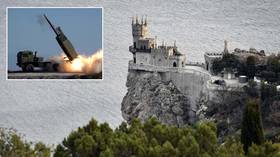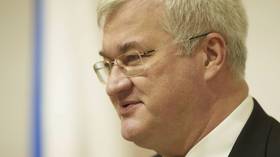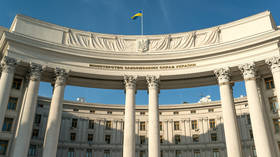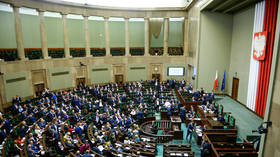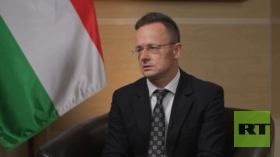UN General Assembly votes on ‘militarization of Crimea’
The United Nations General Assembly has condemned the presence of Moscow’s troops and military hardware on the disputed Crimean peninsula, with one of Russia’s top envoys blasting the Kiev-backed initiative as politicized.
On Thursday, 62 countries voted in favor of the motion, which accuses Moscow of building up its forces in the region and violating the rights of its citizens.
However, the majority of states did not vote in favor, with 55 abstaining from casting their ballots. A further 22 nations, including Russia, and the former Soviet republics Armenia and Belarus, as well as China, Cuba, Iran, and Venezuela, rejected the proposal.
Commenting after the verdict, Russia’s first deputy permanent representative to the UN, Dmitry Polyanskiy, claimed that “for the fourth year in a row, Ukraine, supported by a well-known group of states, has forced the General Assembly to consider a highly politicized draft document.”
Polyanskiy said that the resolution “has nothing to do with reality and does nothing to resolve the internal conflict in the country,” and actually “plays into the painful fantasies spread… about the situation” in Crimea.
Meanwhile, Ukraine’s Foreign Minister Dmitry Kuleba hailed the outcome. Taking to Twitter, Kiev’s top diplomat said that the resolution “includes important support for the Crimea Platform.” According to him, it implores Russia to cease the alleged supply of weapons and personnel to the peninsula and stop violations of freedom of navigation in the Black Sea and the Sea of Azov.
Kuleba also said that the notion “sends a deterrence signal” amid the purported buildup of Russia’s troops on Ukraine’s demarcation line, which Moscow has repeatedly denied.
In 2020, the US military conducted rocket-launch tests as part of NATO exercises, firing from Romania into the strategically vital Black Sea. The deputy head of the Public Chamber of Crimea, Alexander Formanchuk, warned reporters that Russian armed forces had stationed advanced hardware on the peninsula which would be capable of countering a “surprise missile attack.”
“Provocations against Crimea have become more frequent. Unfortunately, we are witnessing a further exacerbation of international relations and the international situation. And the topic of Crimea is a convenient reason for escalating such provocations,” he said.
Kiev considers Crimea to be part of its territory despite the peninsula voting to become part of Russia in 2014. The referendum came just a month after the events of the Maidan, when violent street protests ousted Ukraine’s democratically elected government. Ukraine, as well as most of the world, does not recognize the legitimacy of that vote.
